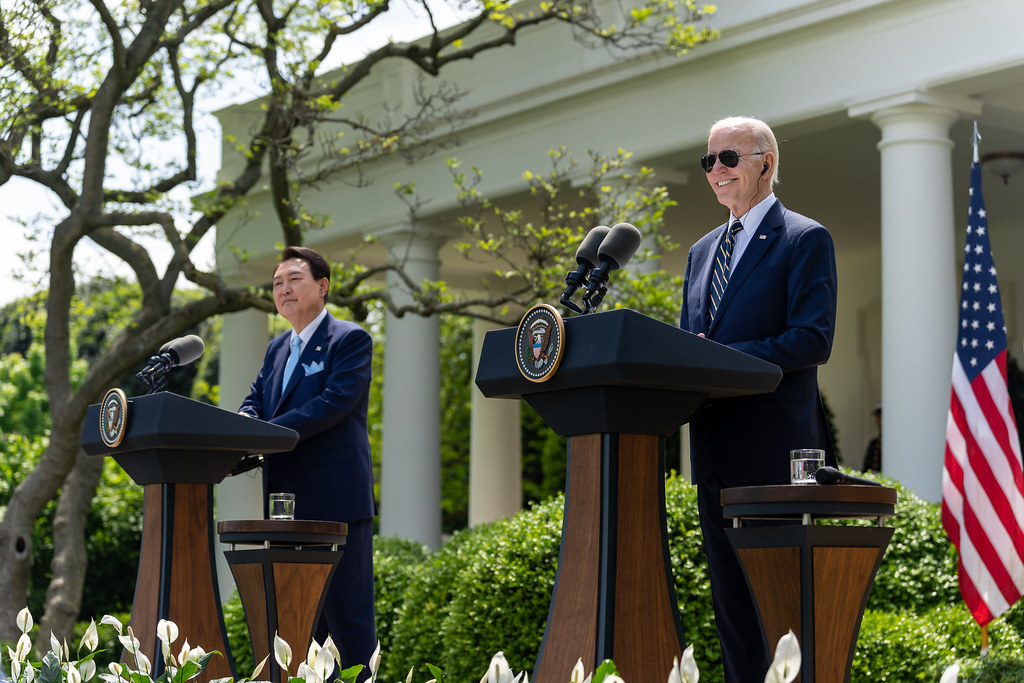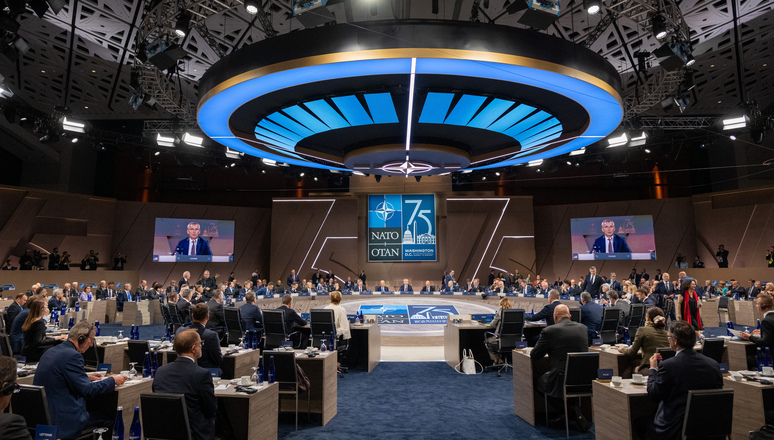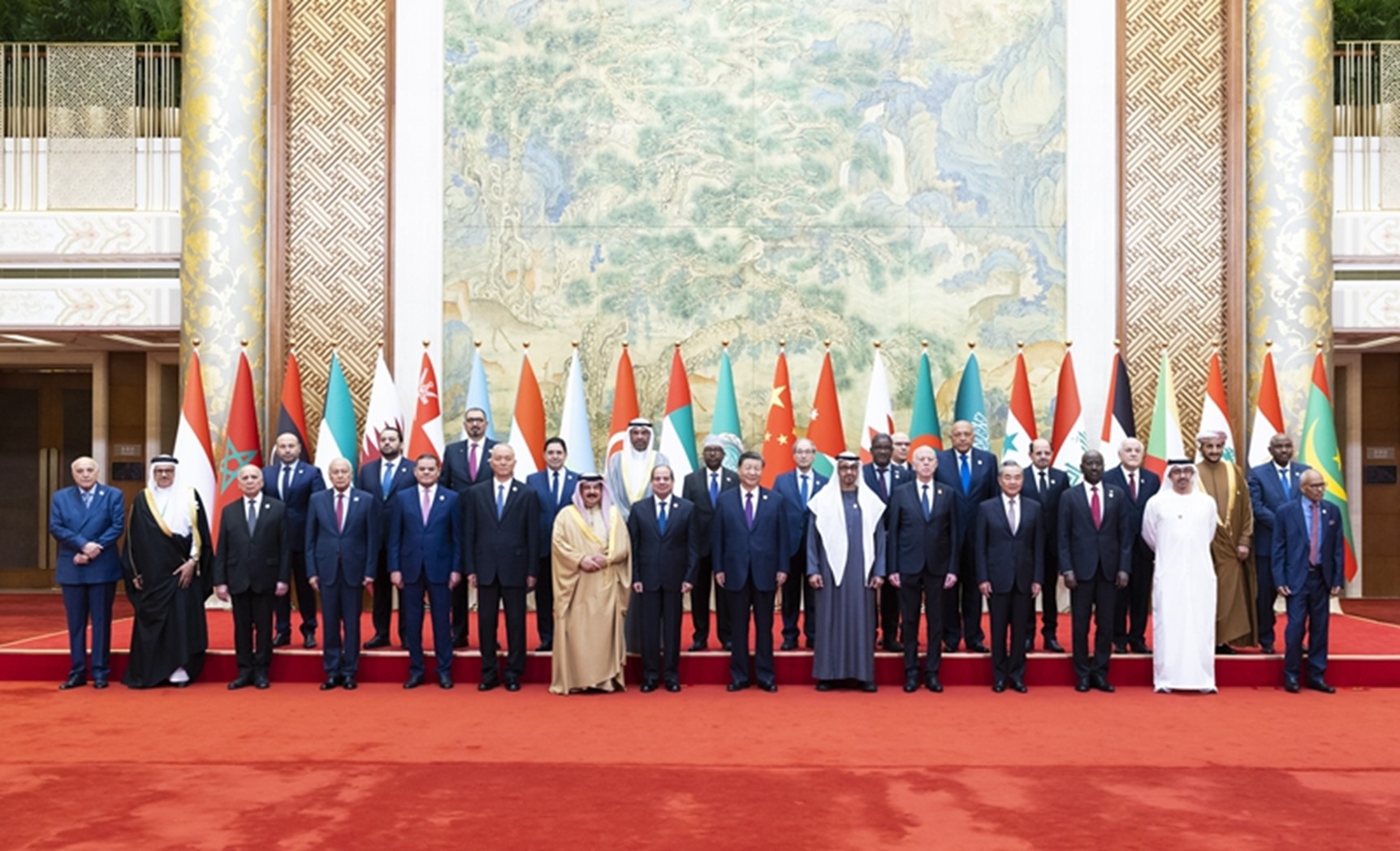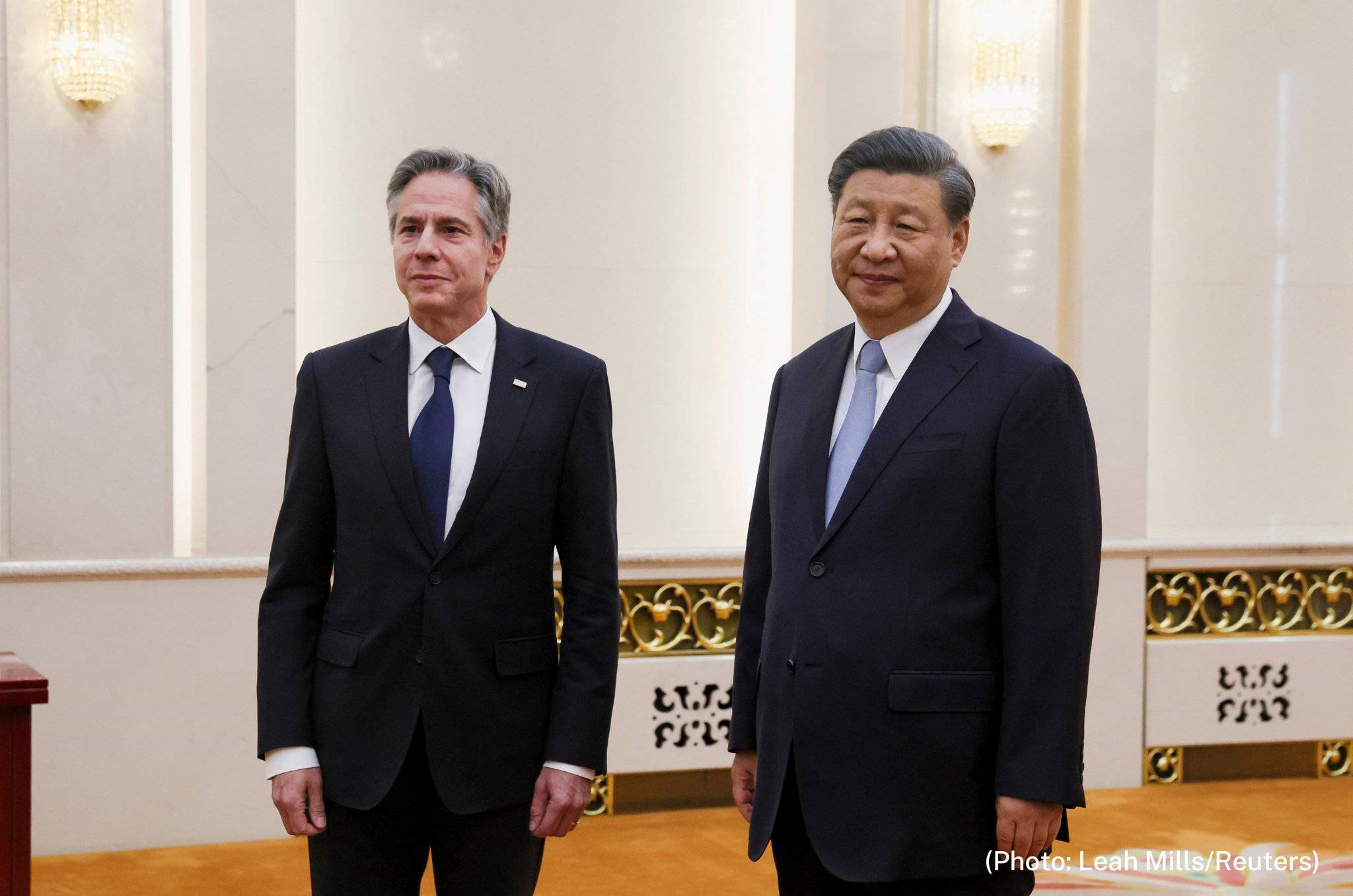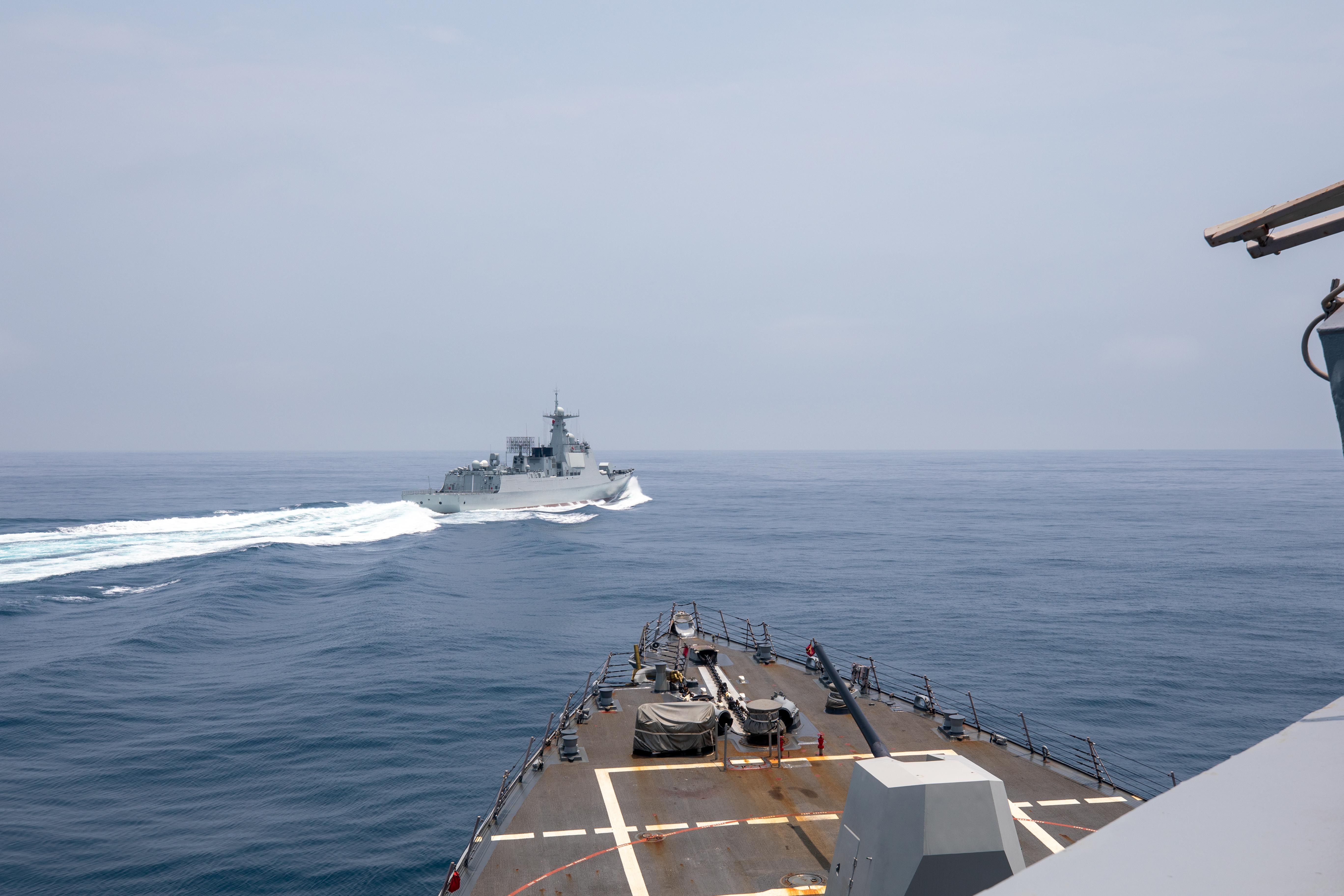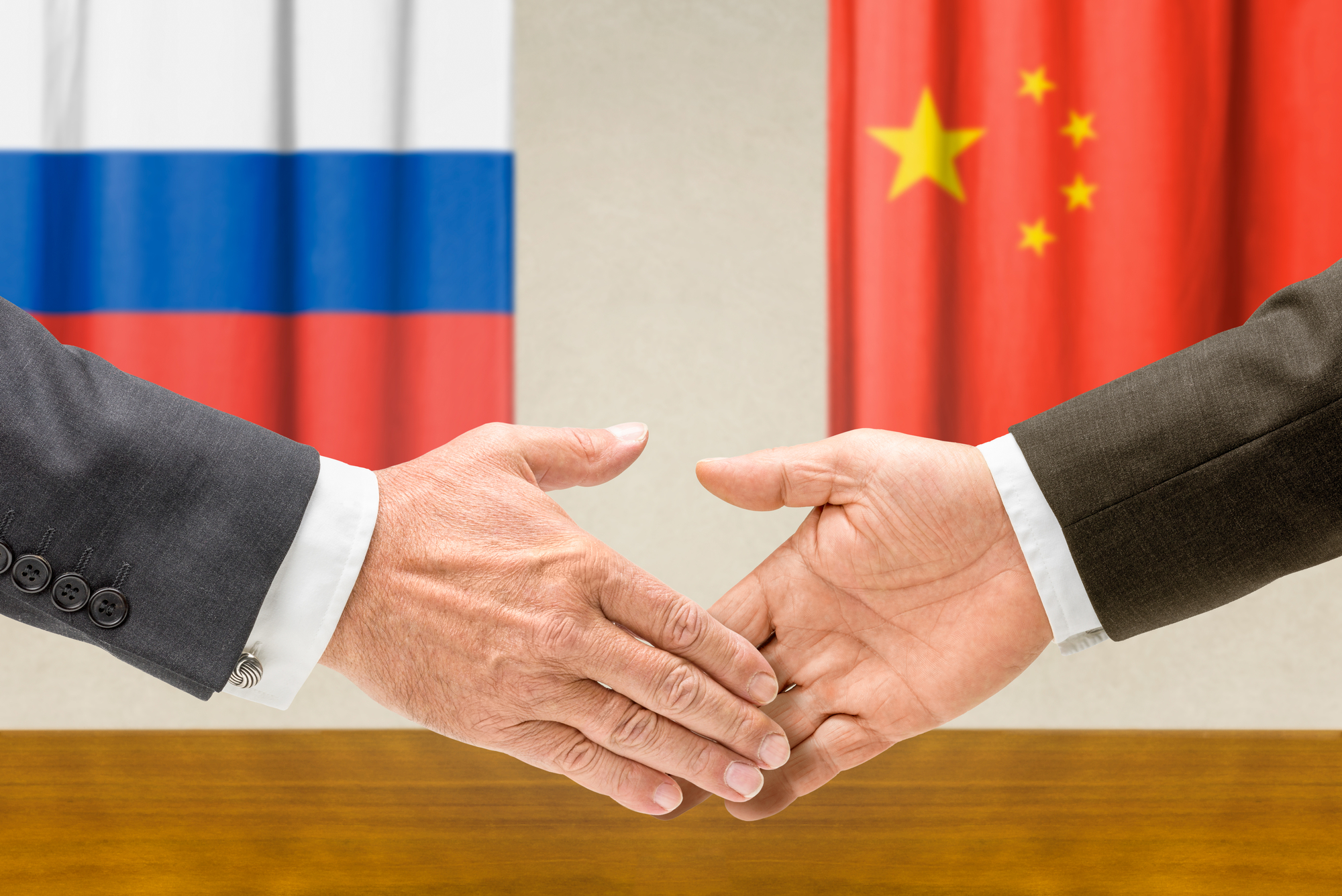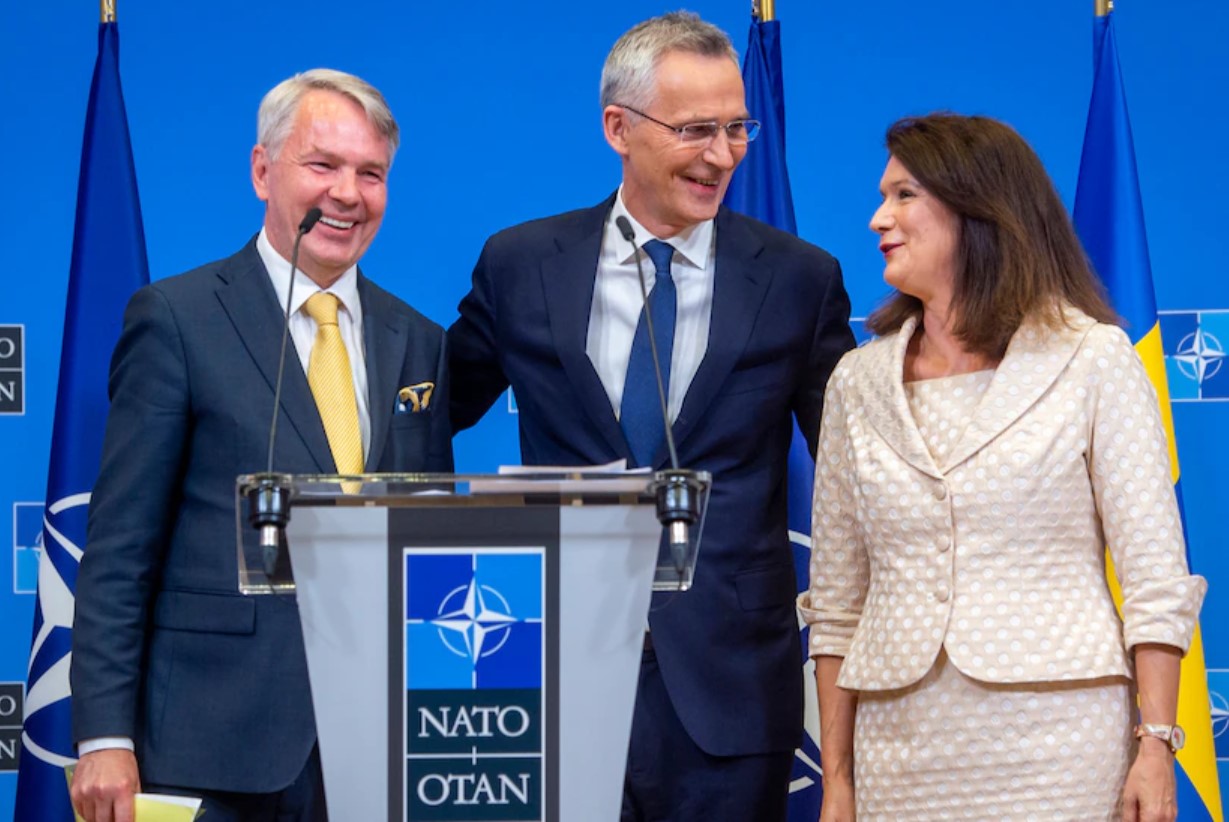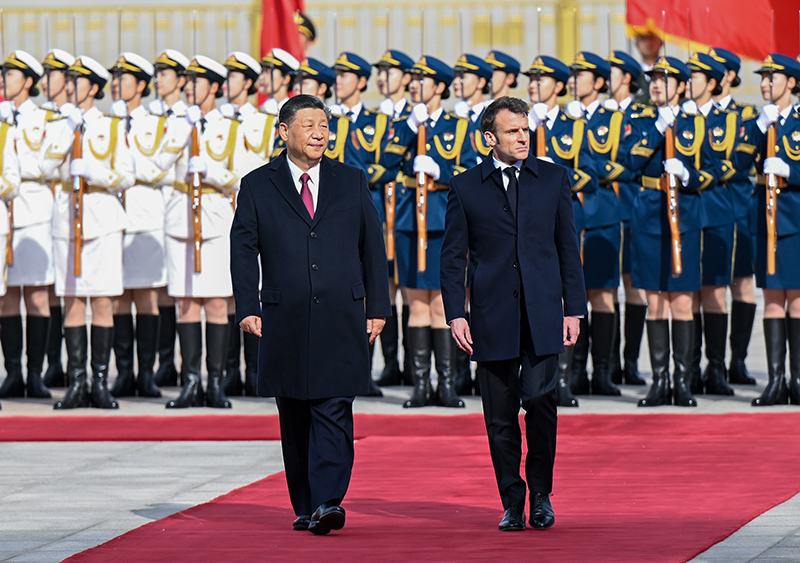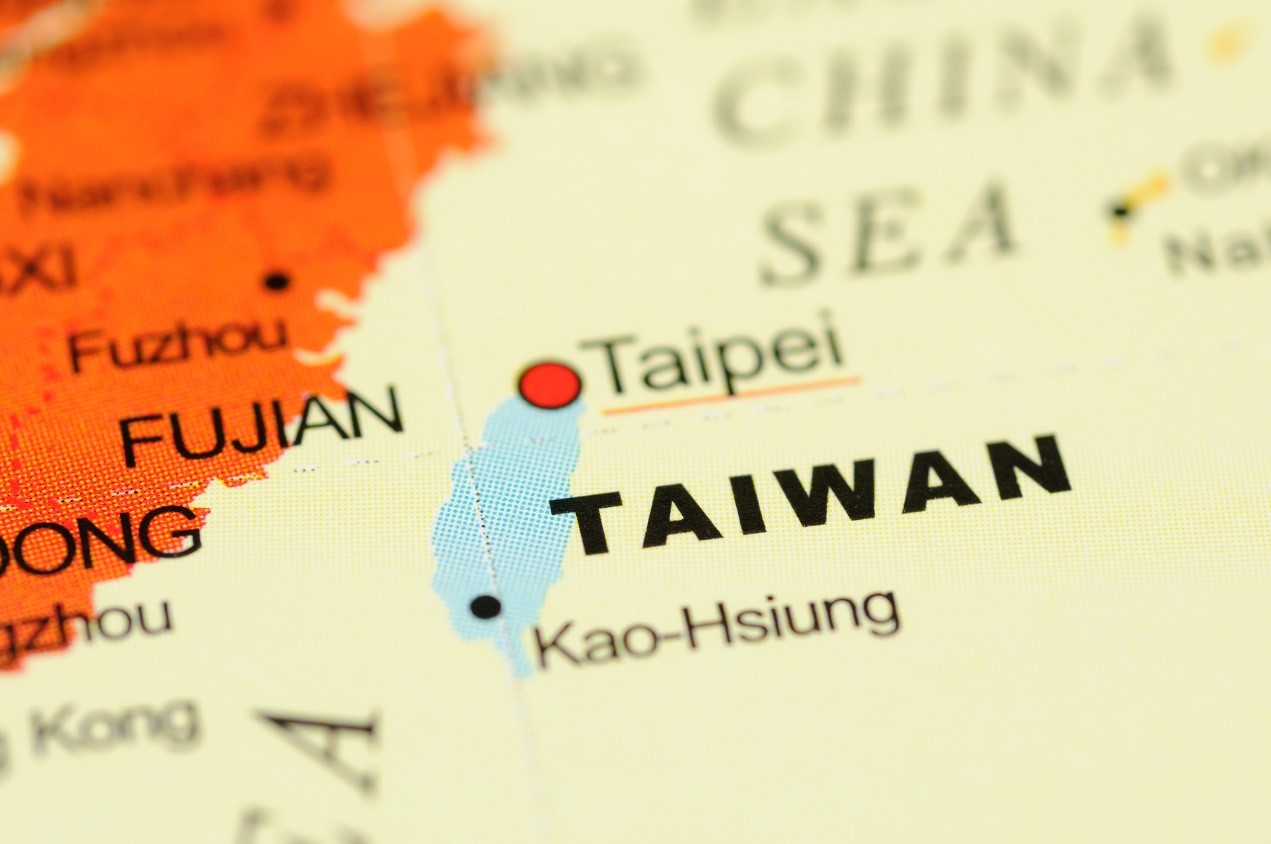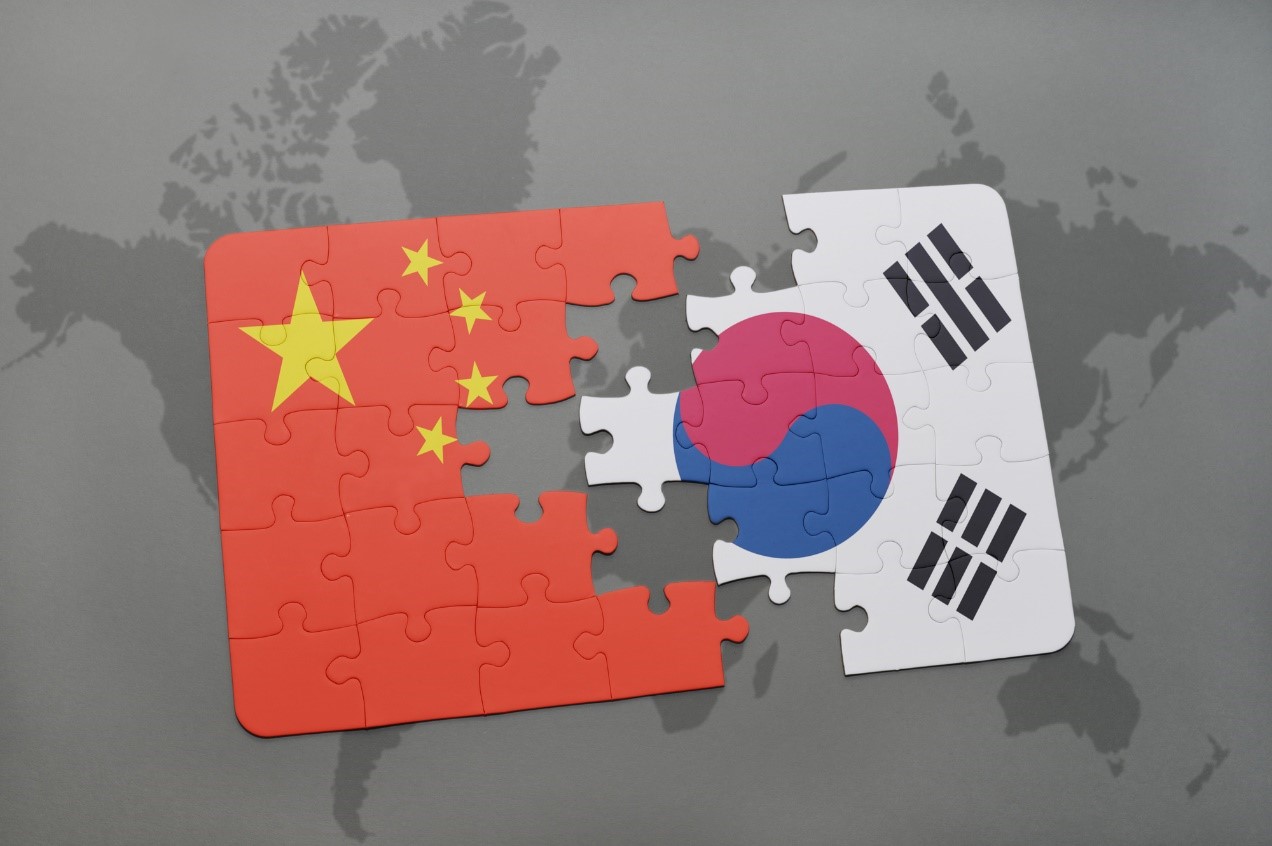The Taiwan issue is not just a cross-Strait issue, but has significant influence on the Korean Peninsula and East Asia, both directly and indirectly. Therefore, it is natural for Korea to emphasize the importance of preserving peace and stability in the Taiwan Strait. Picture source: The White House, April 26, 2023, Flickr, https://www.flickr.com/photos/whitehouse/52861844440/.
The ROK-U.S. Summit and ROK-PRC Relations
Prospects & Perspectives No. 26
By Lee Younghak
At the invitation of U.S. President Joe Biden, South Korean President Yoon Suk Yeol paid a state visit to the United States from April 24 to 29 and held the ROK-U.S. summit. During the visit, which was in commemoration of the 70th anniversary of the ROK-U.S. alliance, the two leaders issued a joint statement delineating the areas of cooperation in global, regional, and bilateral dimensions, as well as the Washington Declaration specifying the ways to strengthen extended deterrence to counter and deter North Korea’s nuclear and missile threats.
The main contents and an evaluation of the ROK-U.S. Summit
The first thing put forward in the joint statement was the role of the ROK-U.S. alliance as a global comprehensive strategic alliance. First of all, the two leaders condemned Russia’s war of aggression against Ukraine, and expressed their continued support for Ukraine through the provision of essential political, security, humanitarian and economic support. The two leaders also denounced North Korea’s nuclear and missile programs, urged North Korea to return to negotiations, and reaffirmed their commitment to diplomatic engagement with North Korea to achieve complete denuclearization and lasting peace on the Korean Peninsula. The United States expressed its support for South Korea’s “Audacious Initiative."
At the regional level, it set out to expand the allies’ cooperation throughout the whole Indo-Pacific region. The two leaders agreed to strengthen mutual cooperation for the prosperity and safety of the free and open Indo-Pacific region. Above all, to oppose economic coercion in the region, it was agreed that the two countries would deepen cooperation with like-minded partners and boost bilateral collaboration in terms of supply chain, Indo-Pacific Economic Framework (IPEF) and Asia-Pacific Economic Cooperation (APEC) forums. In addition, they emphasized the importance of trilateral cooperation between the ROK, U.S., and Japan, and welcomed the progress made in sharing North Korean missile warning data in real-time and affirmed the regularization of anti-submarine and maritime missile defense exercises to deter and respond to the Pyongyang’s nuclear and missile threats.
Meanwhile, the two leaders “reiterated the importance of preserving peace and stability in the Taiwan Strait,” expressing strong opposition to any unilateral attempts to change the status quo in the Indo-Pacific — unlawful maritime claims, militarization of reclaimed features, and coercive activities. They also reaffirmed such values as the freedom of commerce, navigation and overflight in the South China Sea.
At the bilateral level, the two countries agreed to continue close consultations to alleviate concerns of Korean companies regarding the U.S. Inflation Reduction Act (IRA) and the CHIPS and Science Act. They also agreed to promote R&D cooperation in advanced semiconductors, advanced packaging and advanced materials, and to further enhance economic security between the two countries, including the establishment of dialogue for next-generation core and emerging technologies, which will be led by the two national security chiefs. The two countries will also commit themselves to deepening cooperation in cyberspace and space, as well as strengthening people-to-people ties and cooperation in education for future generations.
The main agenda of the summit was to strengthen the allies’ extended deterrence against North Korea’s evolving nuclear and missile threats, as announced in the Washington Declaration. First, Seoul reaffirmed its complete trust in U.S. extended deterrence commitments as well as the ROK’s commitment to its obligations under the NPT and the ROK-U.S. Cooperation Agreement on the Peaceful Uses of Nuclear Energy. Second, the two countries will newly establish a Nuclear Consultative Group (NCG) to strengthen extended deterrence, discuss nuclear and strategic planning, and manage North Korea’s nuclear threats, while enhancing joint execution and planning for extended deterrence and combined exercises.
Third, it was stated that regular visibility of U.S. strategic assets, such as expected visits by ballistic missile submarines (SSBNs) to Korea, would be reinforced, emphasizing that the U.S. extended deterrence for Korea is backed by mobilizing all range of its military capabilities including nuclear weapons. Last but not least, both countries are committed to dialogue and diplomacy with North Korea without preconditions, in order to advance the shared goal of achieving complete denuclearization of the Korean Peninsula.
The ROK-U.S. summit was a very fruitful meeting which not only marked the 70th anniversary of the alliance, but also set the direction for the next 70 years of allies’ cooperation. In particular, the two countries agreed to strengthen extended deterrence for more effective counteraction and deterrence against North Korea’s nuclear and missile threats, as well as to further diplomatic efforts to make North Korea return to the negotiating table for denuclearization. Although South Korea’s concerns over the Inflation Reduction Act and CHIPS and Science Act have not been completely resolved, the two countries are expected to find a win-win solution as they agreed to continue close consultations. Meanwhile, the decision to strengthen R&D and cooperation related to next-generation core and emerging technologies, such as advanced semiconductors, can also be read as a highly significant achievement.
The impact of the ROK-U.S. summit on ROK-PRC relations and the direction of the ROK’s foreign policy
However, it is worth noting that China’s criticism of President Yoon’s recent remarks on Taiwan in his media interview as well as China-related contents of the joint statement before and after the summit has been making the ROK-China relations increasingly uneasy. In his interview with Reuters, the South Korean president expressed his opposition to changing the status quo on Taiwan. Furthermore, the latest ROK-U.S. joint statement made more explicit and specific comments on Taiwan and the South China Sea issues compared to the previous statements. In response, a spokesperson for the Chinese Ministry of Foreign Affairs warned that “we will not tolerate any intervention or interference by outside forces on the Taiwan issue.” Following Chinese Foreign Minister Qin Gang’s undiplomatic expression that “those playing with fire on Taiwan will get themselves burned,” Chinese media such as the Global Times continued to denounce South Korea’s foreign policy. While the South Korean Embassy in China lodged complaint over such remarks, China’s Foreign Ministry spokesperson blamed Seoul’s position on the issue, saying “the media reflects general public opinion in China.”
The Taiwan issue is not just a cross-Strait issue, but has significant influence on the Korean Peninsula and East Asia, both directly and indirectly. Therefore, it is natural for Korea to emphasize the importance of preserving peace and stability in the Taiwan Strait. At the same time, it is also clear that South Korea has recently taken a step further, going beyond previous Taiwan-related comments, expressing strong opposition to the unilateral change of the status quo, and criticizing China’s behavior in the South China Sea.
Meanwhile, Seoul has been boosting its alliance with the U.S. as well as trilateral security cooperation between the ROK, U.S., and Japan. China, in response, seems to have interpreted these developments as South Korea’s willingness to participate more actively in the U.S.’ “suppression” of China. However, the reinforcement of the ROK-U.S. extended deterrence as well as security cooperation between Korea, U.S. and Japan is to respond to North Korea’s nuclear and missile threats and not to target China. In its Indo-Pacific Strategy of Freedom, Peace, and Prosperity, Korea specifies China as a key partner in achieving prosperity and peace in the Indo-Pacific region and seeks to develop healthy and mature relationships based on mutual respect and benefit. Not only is China an important economic partner to South Korea, it is also a country to cooperate with for the peaceful resolution of the North Korean nuclear issue.
South Korea should not feel compelled to pick a side between the U.S., its ally, and China, its strategic cooperative partner. Despite intensifying strategic competition, both Washington and Beijing have been working to manage the competition responsibly, so that it does not escalate into a conflict. Even if there is a competition between the U.S. and China on major regional concerns, including the Korean Peninsula and Taiwan, it should not spiral into conflicts, and efforts should be made to ensure continued cooperation between the two countries on key regional issues.
(Lee Younghak is Research Fellow, Center for Security and Strategy, Korea Institute for Defense Analyses.)


